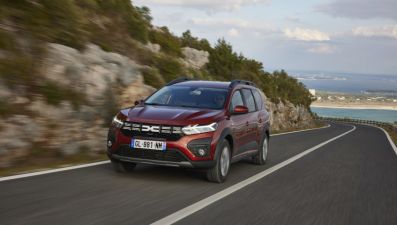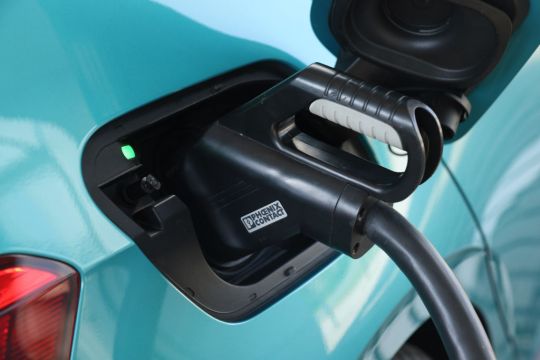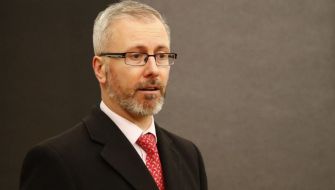Grants for electric vehicles are to be cut by €1,500 to €3,500 for private buyers from July 1st, when the new 232 registration period begins.
The current maximum grant for car buyers, Sustainable Authority of Ireland (SEAI), is €5,000 and this will remain in place until June 30th.
Zero Emission Vehicles Ireland (Zevi), an office within the Department of Transport, announced the changes, saying the focus is turning towards incentivising infrastructure investment and is in line with changes in other European countries.
It said the other supports for electric vehicle purchases remain unchanged. "Vehicle incentives for business stay the same and SEAI will continue to administer the commercially bought EVs and large panel vans grants at current levels. The small public service vehicles (SPSV) grant for taxi and hackney drivers administered by the National Transport Authority (NTA) was renewed in February, while the Alternatively Fuelled Heavy Duty Vehicle Purchase Grant Scheme, managed by Transport Infrastructure Ireland, has also remained unchanged," Zevi said in a statement.
"In addition, there is no change to the existing generous VRT relief which is available to a maximum of €5,000 to purchasers of electric vehicles up to the selling price of €40,000, with a reduced scale for vehicles up to the selling price of €50,000."
The SEAI grant has been in operation since 2011 and has applied to the purchase of over 40,000 electric vehicles in that time, with almost €200 million in funding granted for the purchase of privately owned vehicles over the past 12 years, according to the statement.
As of end December 2022, there were 73,574 electric vehicles on Irish roads.
Zevi said the changes match those taken in European nations, where countries including Norway, Germany and France have begun to curb vehicle subsidies and government investment in EVs is moving towards infrastructure.
North's EV infrastructure
On Tuesday the ESB said it would make a £10 million investment in EV charging in the North. The investment will see older, slower 50kW chargers replaced with newer, faster 100kW ones as well as a doubling in the total number of such chargers.
There will also be a minimum of five rapid-charging hubs, capable of charging at least six cars at once at speeds of up to 200kW each. The 200kW chargers are capable, depending on your car, of adding as much as 100km of extra range in just six minutes.
figures from the UK’s Department for Transport show there are currently 19 EV chargers per 100,000 people in Northern Ireland. That compares to 131 in Dublin, and 69 in Scotland, a nation with a far more dispersed population.
“The original network in the North was installed as far back as 2011, by a consortium of which E-Cars was part” said ESB E-Cars’ John Byrne. “Over time, the reliability of that network has fallen quite a lot. Some of that is down to the fact that some suppliers of the chargers that were used either went bust or, in the case of the likes of Siemens and ABB, stopped supporting those particular models. We’re very proud of our reliability record in the Republic of Ireland and the rest of the UK, where we’re generally 98-99 per cent reliable, but the network in NI had fallen to around 70 per cent reliable.”
According to the ESB 30 charging points were replaced last year on a like-for-like basis in terms of charging power. Now, the bigger plans are coming to fruition. Byrne said the North’s 50kW charging points will be replaced by 100kW chargers, each with the ability to charge two cars at once.
It also means that the CHADEMO charging points — intended mostly for first-generation Nissan Leafs and a handful of other models — will be largely shut down, as the new charging points will use dual CCS plugs (the double-decker plugs which have become the standard across Europe for rapid charging).
The upgrade in the network coincides with the arrival of pay-for-use charging. Until now ESB chargers in Northern Ireland have been free to use thanks to having been installed at a time of now-outdated legislation that used free charging to encourage the takeup of electric cars.
The costs for using the new chargers will start from 49p per kWh for slow pay-as-you-go 22kW charging (such as on a kerbside charger) or 46.2p per kWh if you subscribe to ESB membership for £4.99 per month.
Faster charging — between 50kW and 100kW — will cost you 57.7p per kWh on pay-as-you-go or 54.3p for subscribers. High power charging, 150kW and above, will cost 67p per kWh on pay-as-you-go or 63.1p per kWh on subscription. The ESB, unlike some other operators, categorises 100kW charging points at the same level, and crucially cost, as 50kW units, so they will not cost any more to use than the older units.
There will also be ‘overstay’ fees of £8 for drivers who exceed the 45-minute wait time on rapid charging points, or 10 hours on slow chargers. The ESB says that more than 80 per cent of EV drivers surveyed approved of the imposition of overstay fees.

The plan for investment in the North is partially backed by the UK government’s ‘Levelling Up Programme’ which has committed £3.27 million of the £10 million total — that money is currently passing over the last of the legal and oversight hurdles.
The Republic is not being left out. There are new high-speed charging hubs planned for Barack Obama Plaza (which will be capable of charging up to eight cars at once) and three more high-speed charging points will come online in north Dublin this month. Further high-speed charging locations are planned for Killarney, Tipperary town, and Waterford amongst others.
Byrne also promises that reliability — and crucially spares backup and support — are included into the supply contracts for the new chargers. While the work on the high-speed charging hubs will yet take time — some involve both planning permission and significant ground works, as well as in some cases improvements to the local electricity network so that it can supply the power demand — one close to Belfast on a major arterial route is close to breaking ground already. For the rest of the chargers, the new 100kW points fit into the same dimensions as the old 50kW ones, so they should be installed relatively quickly.
“This is the first step of a big investment programme. Those reliability rates will rock right up. This will be by far and away the most aggressive here in terms of expansion. Right across the right across the board, right across the border” said Byrne.







